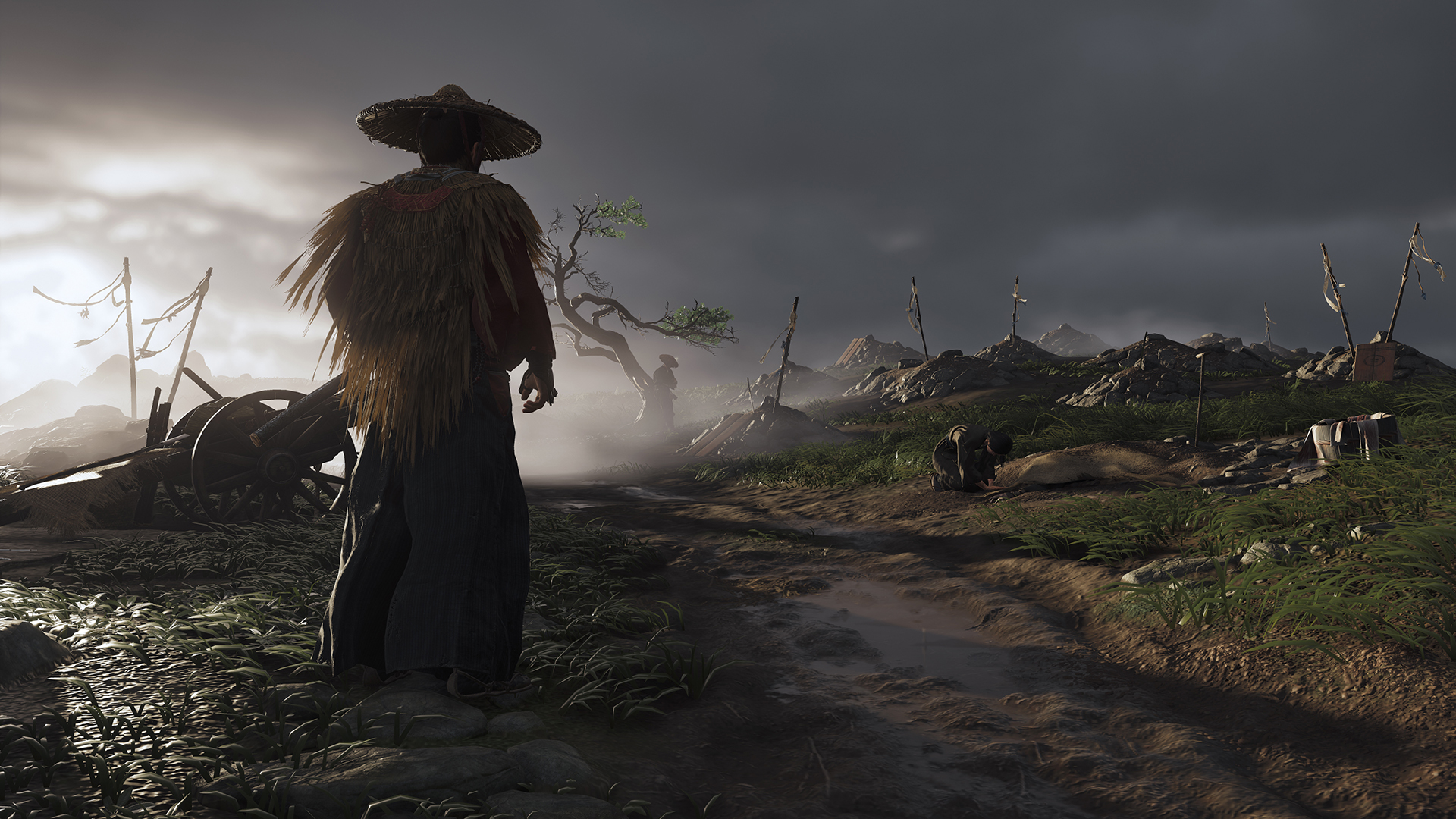
Shōgun season 1 is in the books, and the historical epic has garnered both critical and commercial success, with its premiere pulling in 9 million views (the most ever for an FX series) and its ten-episode run earning nearly unanimous positive reviews (it’s currently sitting pretty at 99% Fresh on Rotten Tomatoes). The problem is, if you’re one of the millions captivated by the sprawling mini-series, a second season is anything but confirmed. In fact, at this point, it’s unlikely to happen.
The good news: there are plenty of terrific pieces of Feudal Japanese fiction to explore, and one of the very best is the breathtaking Ghost of Tsushima. The PlayStation exclusive is just as grand in scale as Shōgun, and while it’s a different kind of samurai story entirely, it’s a perfect complement to the show in that it focuses on aspects of the setting that the show doesn’t.
Ghost of Tsushima is set in 1274 during the Kamakura Period, when the Mongols first invaded Japan, while Shōgun is set during the Sengoku Period, near the end of the 16th century. The game is far more fictionalized than the show (many details of the Mongol invasion and the period setting are altered in service of the game’s story), but it’s still very much reflective of the themes, philosophies, and culture that defined the era.
While the show mostly focuses on Lord Toranaga’s political survival tactics and is largely dialogue-driven, the game is more thoroughly steeped in the elements and the grandeur of the outdoors. The nice thing about diving into the world of Ghost of Tsushima after watching Shōgun is that it’s more experiential and meditative, giving you the opportunity to explore the titular island’s picturesque countryside, beaches, and villages on your own time.
Maybe more than any other video game ever made, simply traversing Ghost of Tsushima’s game world is as captivating (if not more captivating) than any other aspect of the experience. Developer Sucker Punch paints a ravishing picture of rural Japan that’s ever-beautiful and ever-changing, with weather patterns that make the grasslands ripple like water, the autumn leaves swirl and swoop like brushstrokes. The landscapes are stunning, and there’s a reverence for the beauty of nature built into the game that contrasts in an interesting way with how nature is characterized in Shōgun, with the looming danger of earthquakes in the show symbolizing the lurking inevitability of death.
Mortality and its philosophical and psychological effects on society and individuals is a key facet of Japanese history and, in turn, both the game and the show. But they explore these ideas in very different ways. Several of Shogun’s characters perform seppuku, a form of ritual suicide, in the name of honor and expression of a greater purpose. John Blackthorne, with his Western sensibilities, is horrified by the act but later comes to understand the power of the ritual as a form of protest, as Mariku demonstrates in the series’ scintillating penultimate episode, “Crimson Sky.”
Ghost of Tsushima’s protagonist, Jin Sakai, comes to redefine his relationship with death in a different way than Blackthorne does. The direness of the Mongol invasion forces him to abandon the samurai code of honor he’s devoted his life to. Throughout the story, he gradually assumes his “Ghost” persona, employing ninja-like tactics of deception to take down Khotun Khan’s army. This causes a violent internal conflict in Jin and an unexpected external conflict with his fellow samurai. The game and show are a perfect pairing in that they explore related themes like honor and loyalty in ways that are wildly different and yet very much in the same spirit.
Shōgun’s complex cultural dynamic between the Japanese, English, and Portuguese players is one of the most fascinating elements of the show. Whether it’s Mariko or any of the other multilingual characters, watching the way they translate speaks volumes about their motives and the emotional state of their “secret heart.” You won’t find this level of sophistication or subtlety in Ghost of Tsushima’s story, but this is anything but a knock. The game is more like a fable, using broader but no less profound narrative strokes to bring its characters to life and get its messages across. It’s a different style of storytelling, and yet the underpinnings of both stories remain the same: honorable death, the sanctity of tradition, the nebulousness of fate.
On a more fundamental level, Ghost of Tsushima is, well, a game, and lets you become a samurai yourself via Jin, slicing and dicing his way toward liberating his homeland from the invaders. The game’s combat is insanely fun, with Jin’s skills with his sword evolving as you play, forcing you to adopt different stances and abilities to slay different types of enemies. The stealthy “Ghost” gameplay is just as addictive and empowering, so whether you gravitated toward Shogun’s straightforward sword fights, or were more taken by the tense assassination scenes, the game is ready to help you scratch that itch.
More so than anything else, what makes Ghost of Tsushima a great way to cope with your Shōgun withdrawals is that it’s another phenomenal historical Japanese epic with an appropriately epic runtime. Whereas the show is ten one-hour episodes long, the game lets you immerse yourself in the beauty and brutality of Feudal Japan for literally hundreds of hours. Jin and his allies’ fight to reclaim their land, village by village, region by region, gives the game a more ground-level, grittier perspective of war than the show and its bloody palace intrigue offers.
Shogun showrunner Justin Marks said in an interview with Slate that the show’s writers were heavily influenced by Wong Kar-Wai’s legendary romantic drama In the Mood For Love, while Ghost of Tsushima was so influenced by the films of Akira Kurosawa that the game literally has a “Kurosawa Mode” built in that gives the visuals a filmic effect. Wong and Kurosawa are two very different filmmakers, and yet their films work together splendidly as double features. For the same reason, if Shōgun resonated with you, there’s no doubt Ghost of Tsushima will too.
The post Why Ghost of Tsushima Is the One Samurai Game All Shogun Fans Have to Play appeared first on Den of Geek.











